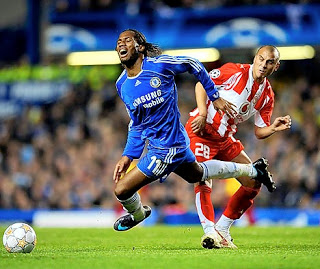One thing was particularly strange for me about Euro 2020.
The referees were praised for their performance.
For a sport in which “controversial decisions” make just as many headlines as victories and transfers, and outrage at mis-awarded penalties or eyelash offsides are a weekly spectacle, this is both refreshing and curious.
The state of refereeing in general, prior to the tournament, was not in a good way. The handball rule is so convoluted no one really understands it, and it keeps changing. Even with the almighty VAR, an entity which had probably made more enemies than friends during its introduction, mystifying calls are still given. It has strangely invited closer scrutiny and criticism of refereeing decisions, much more so than it has taken the pressure off them, like it was intended to do.
Also, there is a veil of secrecy and uncertainty around each decision; there is no communication with fans about how decisions are reached, no clues as to the thought processes and judgements that go into it. I sometimes can imagine the officials watching the screen, scratching their heads, looking at each other, shrugging, and tossing a coin.
But, for all the controversy around the state of officiating in the game, the root of the problem is not, I contend, down to incompetence (mostly). It is down to the insidious, sometimes-alluded-to-but-rarely-discussed openly, culture of dishonesty and cheating amongst football players that is now a cemented part of the game.
“Clever play” … “He’s drawn the foul well” … “He’s won his team a free-kick” … “Masters of the dark arts” … These are all well known phrases used by commentators. Fouls are no longer committed. Fouls are won. Fouls are created. A player sticks his leg out, waits for contact, then goes down. Matches, leagues, entire tournaments are decided by this. And although it seems like a strong word, it is cheating. It is not trying to outplay an opponent. It is cheating disguised as artistry. Sterling pretended to get knocked down, which won his team a penalty, which took them to European final. This is how teams succeed now.
(I should clarify this is not the point of view of a bitter Welshman. I thought the England team deserved to reach the final and were unlucky not to go all the way. They did a lot more great things than bad overall.)
It begins with the intense desire to win by any means necessary, under immense pressure from thousands of fans. I make no claims here to be an absolute moralist, and can certainly understand why a player might take the opportunity to dive if it means his team wins the game, wins the trophy. The results get remembered, the incidents of the game less so.
This is why referees make decisions which baffle and confuse fans. Because they can’t trust players, because they have to try and decipher subtle clues in body language, motivations and intentions, all in a split second, all in a hostile atmosphere. Telling whether people are being truthful or not is generally not something people are good at (read Talking to Strangers by Malcolm Gladwell for more on this). If a referee could walk onto the pitch knowing every player there had integrity, respect and honour, he would be much more confident in his ability to police the match.
Gary Neville once said that it shouldn’t be called cheating because “everybody’s doing it.” Although the logic in this statement somewhat falls apart on its own, what I take from it is that the rules of the game have unofficially changed. Cheating has become fair, by popular demand. It reminds me of a news story I read about a group of parents in China who protested their children’s right to cheat on tests, because everybody else was. Not only did they protest, but they also won.
For all my moralist preaching here, I unfortunately don’t have any ideas on how to solve this problem, if indeed it is one. Trying to turn all footballers into honest people isn’t a project anyone would want to undertake.
The concept of issuing retrospective bans for players’ diving has been discussed and largely tossed aside, ostensibly because it would cause “chaos”, which to me just sounds like a subtle way of saying that it would bring to light exactly how bad the dishonesty in football has become. It may be ugly, but tough punishment is probably the only way to make players weary of collapsing on the floor the next time their elbow is lightly brushed, and I’m sure Sean Dyche would agree with me.
Sadly, however, this won’t happen. Players will continue to deceive, pundits will shake their heads and tut-tut, and the incident will be forgotten. Football is an evolving thing. It now exists with cheating at its core, and as long as it remains a successful way of getting results, it will be here to stay.
But there’s one thing still on my mind. If Christian Eriksen had collapsed like he did immediately after a challenge, the referee would’ve been forgiven for thinking he was being theatrical.
He might even have booked him!
See also:

